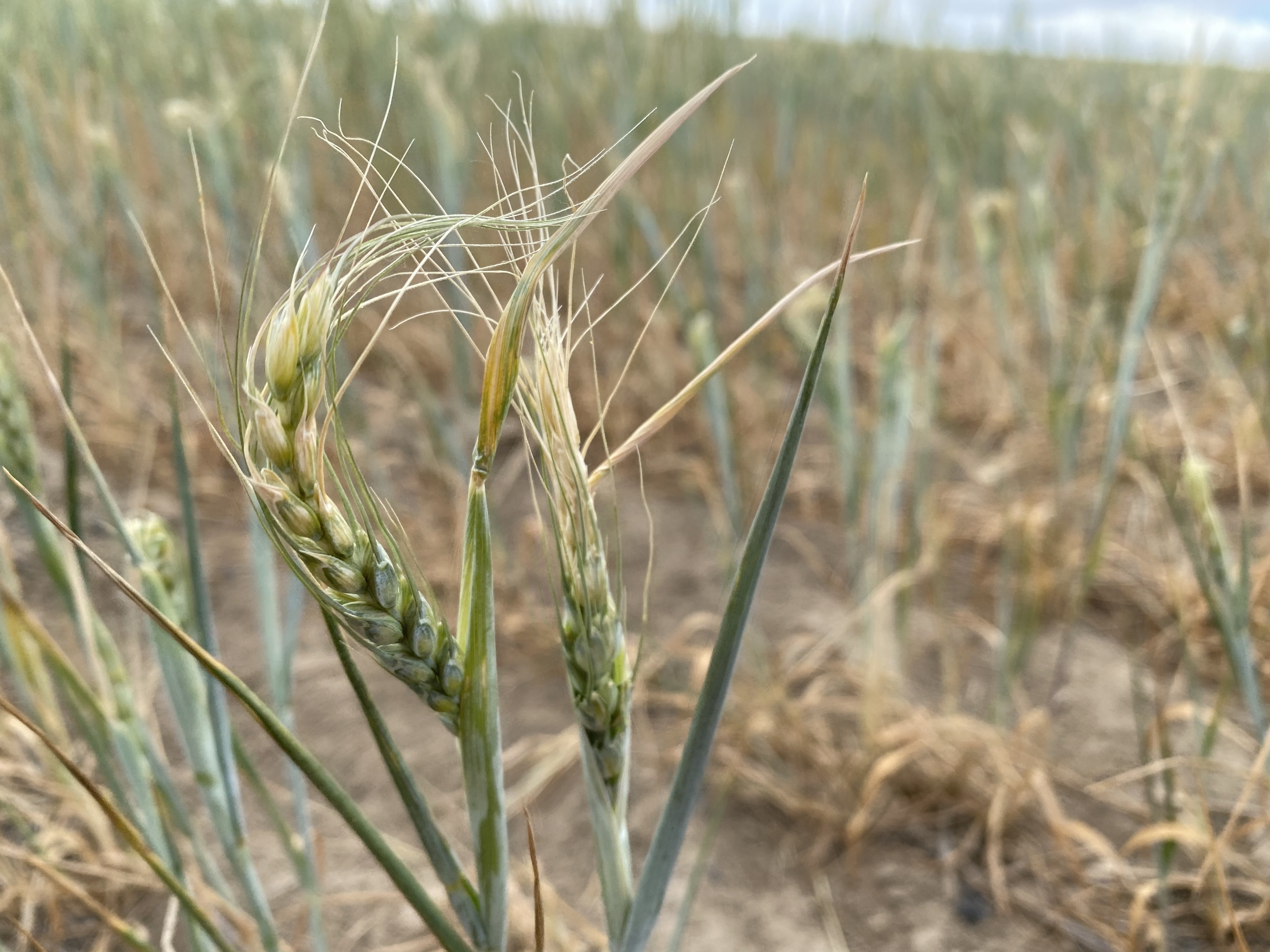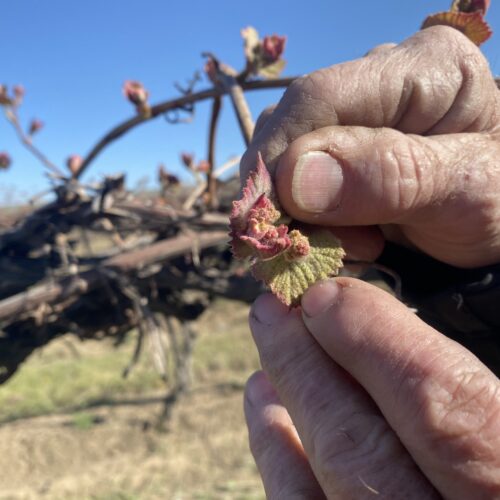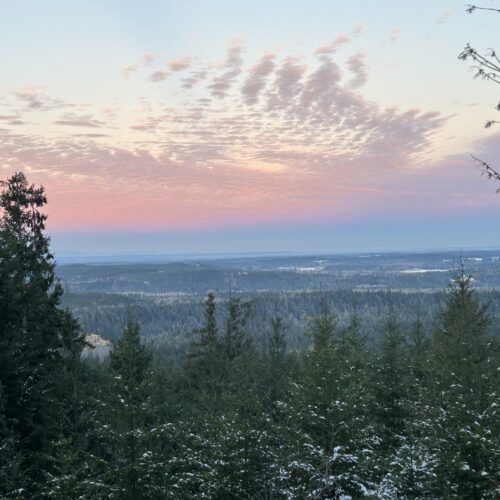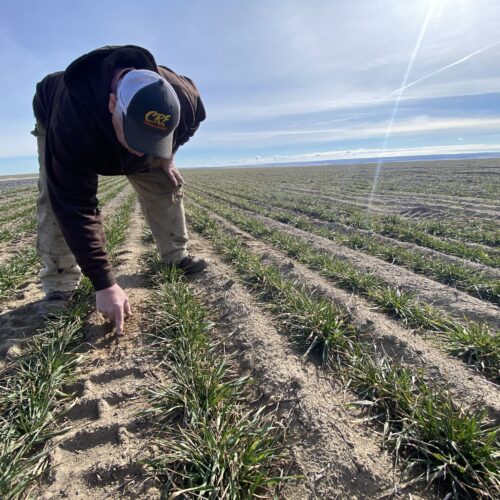
High Heat Brings High Worry About Crops, As Farmers Were Already Dealing With Drought
READ ON
Northwest farmers are pouring on the water to moisten soils ahead of the triple-digit temperatures and possible record highs expected this weekend.
As the temperature climbs, Drex Gauntt in Washington’s Walla Walla County has some baby sweet corn he’s pretty worried about.
“We’ve got little green shoots that all stand in nice neat bright green little rows, they’re about two inches tall,” Gauntt told the Northwest News Network on Wednesday.
Gauntt says he has crews checking irrigation pivot sprinkler heads and taking soil moisture readings in every field. But it’s hard to keep ahead of the water when new plants’ roots are so shallow.
“Their root structure is probably in the neighborhood of two-to-two-and-a-half inches deep right now. And so this hot weather can make this top layer of ground in a big hurry,” Gauntt said.
New blog post! Here we provide an update on the unprecedented heat wave beginning this weekend! Spokane will likely at least tie for the hottest day ever in history either Monday or Tuesday. https://t.co/y9ZlpNqBwe #wawx #idwx pic.twitter.com/gmiqqdhfqN
— NWS Spokane (@NWSSpokane) June 23, 2021
The farmer has set up water stations and has asked everyone to watch their fellow workers for signs of heat exhaustion.
Across the region, wheat crops were already suffering from drought before this weekend’s heat wave across the West and upper Midwest.
When wheat plants are stressed, they stop making grain. This heat wave is most likely going to reduce the numbers of kernels of wheat produced and shrivel many of the wheat berries making them lighter weight, according to USDA wheat expert Craig Morris, based in Pullman. Morris says that likely means less of a crop than normal.
“I think three-quarters is probably pretty realistic from what I’m hearing,” Morris said. “But again, until the combines roll and the trucks get filled up and go across the scales, and go to the elevator, you know we aren’t going to know for certain.”
Wheat farmer Nicole Berg, who farms in Washington’s Horse Heaven Hills, says there’s another problem with the near 113-degree weather that’s expected early next week during bluegrass harvest.
“I don’t think we’ll run the machines,” Berg said. “You know cause it’s too hot for the combines, you’ll start breaking belts — they’ll melt.”
Heat can also raise the protein in the crops. That makes an undesirable consistency in Japanese sponge cakes. Much of the Northwest’s grain is sold to the Philippines, Japan and Korea for confections and noodles.
Related Stories:

Drought expected to plague farmers in the Yakima Valley, Kittitas areas this summer
Jim Willard shows “bud break” on an old block of concord grapes eight miles north of Prosser, Washington. The baby leaves and buds start pushing out to become grown vines

Early January storms bring much-needed snow to the Northwest – is it enough?
Snow and ice has blasted the lowlands lately but up high where it counts for the rest of the year, snowpack is still a bit thin in parts of Washington

A Northwest dryland wheat farmer looks to the sky, contemplates the coming harvest
Even with all the rain and snow in California this winter, it’s been pretty dry in our region, especially in much of eastern Oregon and parts of eastern Washington.















